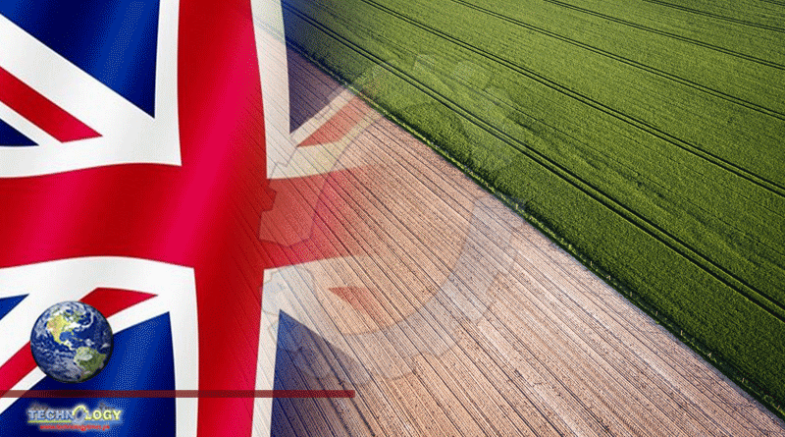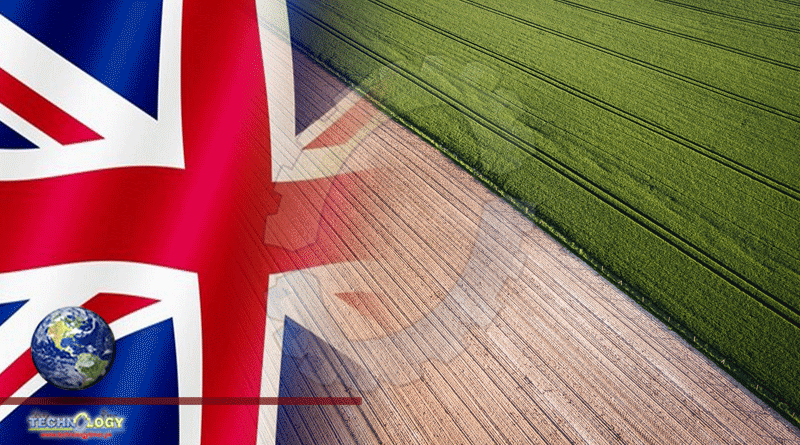Through Our COP26 Presidency We Will Help To Shape Future Innovation & Policy To Deliver A More Sustainable Green Farming Sector.”

The Government’s new green farming policy will actually increase global warming as Britain is forced to import meat with a bigger carbon footprint, experts have warned. Plans to phase out direct payments to cattle farmers “will lead to a 10 per cent or greater reduction of beef production” in the UK over the next five years, an analysis by the Sustainable Food Trust (SFT) predicts. But it is warned that rather than reducing carbon emissions, the plan will increase them as food is flown in from countries such as Brazil. Studies have shown that “for every hectare of grassland planted with trees in the UK, approaching two hectares of rainforest would have to be felled to make up the lost production”, said Richard Young, SFT Policy Director. He told the Telegraph that whilst the policy might “cosmetically help the Government” to look like they are reducing emissions it will mean “the real problem globally is going to be worse”.
The agricultural shake-up announced by the Government in November will see direct payments based on acreage gradually replaced with a scheme that rewards farmers for environmental projects. Commentators have noted this will have a huge impact on the grazing livestock sector, which accounts for a large proportion of farmland in England, 55 percent of which is grass. Defra has proposed a number of solutions, including making farms more intensive, paying a lump sum to those wishing to leave the business and encouraging those on poorer land to give up their livestock and plant trees.
Mr Young, who runs an organic cattle and sheep farm in the Cotswolds, said that “at face value, this looks like an attractive option” and it will reduce methane emissions in England whilst the trees reduce carbon in the atmosphere in a “win-win situation for the Government”. But he warns that ministers have ignored the “key aspect” – whilst meat consumption remains at current levels the policy will result in an increase in imports. Mr Young said: “In most cases that meat will have a significantly higher carbon footprint than beef or lamb produced in the UK.”
He said of the policy: “It’s the worst of all worlds, dreamed up by policy-makers in Whitehall and some environmentalists, who have little if any practical experience of food production and no real feel for the land, let alone the planet.” Research by the Food Climate Research Network, based at Oxford University, has found that the average global carbon footprint per kilo of beef and lamb is around double that of the same produced in the UK. Mr Young said that this is largely due to rainfall levels which mean even the poorest grassland is more productive than fields in other parts of the world.
A 10 per cent reduction in cattle and sheep numbers in the UK by 2050 has been called for by the Government’s Committee on Climate Change, but “unlike Defra” the advisors note that this needs to be alongside a 20 per cent reduction in meat consumption per person. If this reduction now happens over the next five years, as the SFT estimate, then it is thought that the UK is likely to look to Brazil to make up the shortfall of produce.
The carbon footprint of Brazilian beef is 14 times higher, research has shown, and even if it is imported from sustainable farms “we will inevitably be adding to that overall increasing demand which will result in further rainforest destruction”, Mr Young said. . Furthermore, there are carbon emissions associated with the transportation and refrigeration of produce that comes from abroad. Mr Young warned: “We cannot afford to lose too much productive land because the knock-on biodiversity impact of that elsewhere on the planet could be greater than any benefit gained.”
The SFT are calling for a scheme to encourage farmers to plant trees in hedgerows, which will help reduce carbon in the atmosphere without losing food producing land. . Mr Young added: “We have a history in this country of rushing into things and making them worse rather than better.” However, the Government insists that their research has shown that most farmers will be able to adapt to the new payment system.
A spokesman said: “Climate change is a global problem and the UK is at the forefront of tackling the issue, introducing a world-leading green farming policy to help create cleaner, greener landscapes and build towards our net zero commitments. “Phasing out Direct Payments over the seven-year agricultural transition period will free up budget to help farmers manage the environment sustainably and reduce emissions – and through our COP26 presidency we will be helping to shape future innovation and policy to deliver a more sustainable global green farming sector.”
This news was originally published at Telegraph
